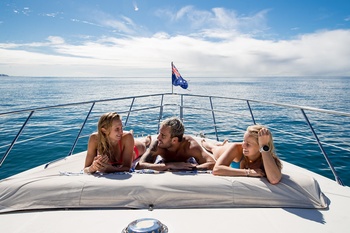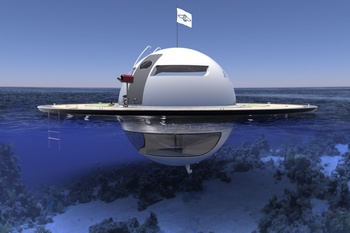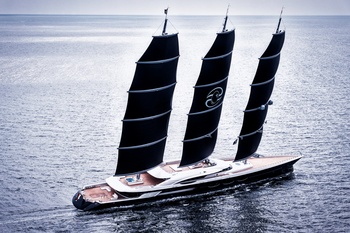France-based Spindrift Racing has set off on the start of its round-the-world non-stop journey on the 40m maxi-trimaran Spindrift 2. The crew of 12 sailors have been waiting for suitable weather conditions since November 5th: to sail the course in less than 40 days, 23 hours and 30 minutes and to win the Jules Verne Trophy, it is vital to be able to reach the equator in at least five days. If they succeed, their next goal will be to circumnavigate the Cape of Good Hope(South Africa) in around 12 days from the start.
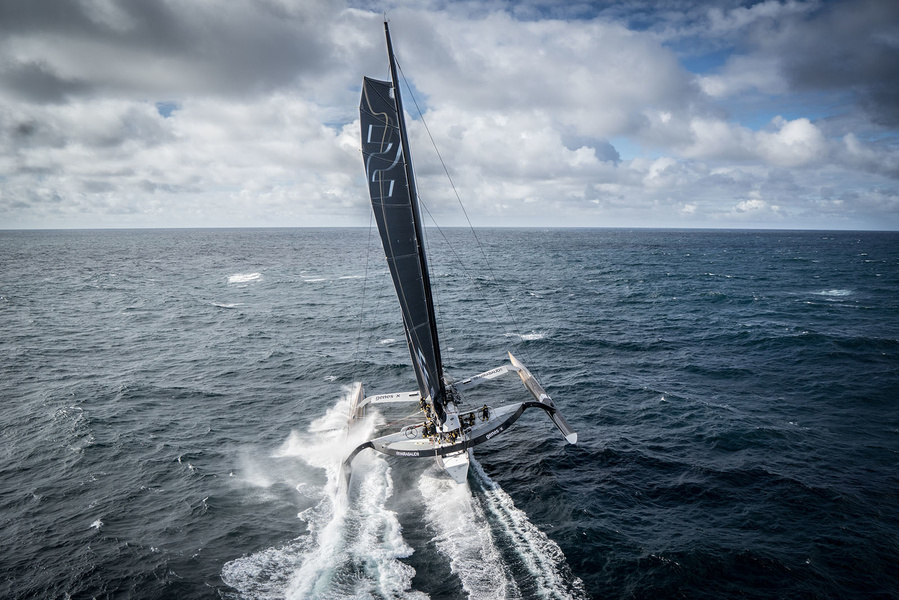
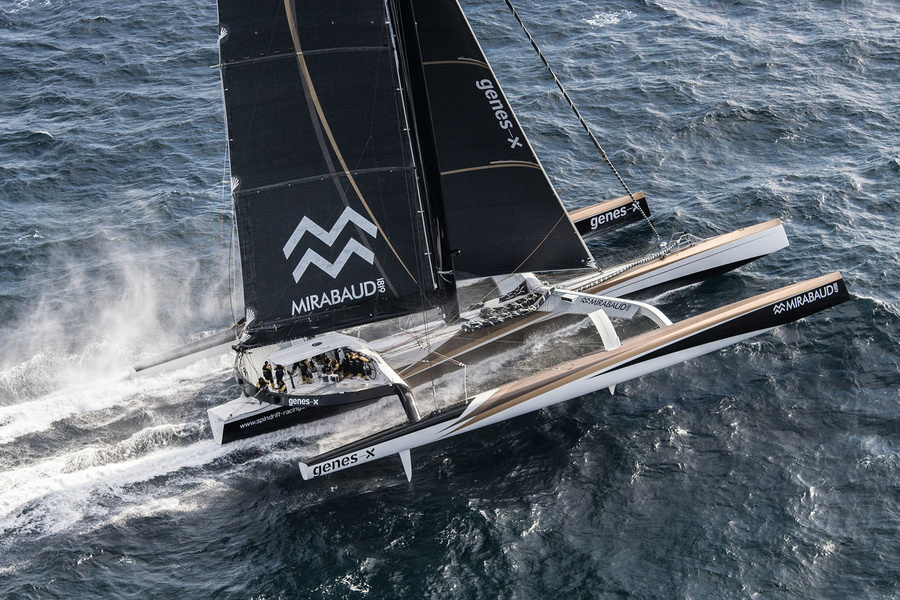
«We expect to depart from Brest dock on Tuesdayafternoon to reach Wessan and cross thestart line there between midnight and three in the morning on Wednesday»,' said skipper Yann Guichard.
The previous record was set in 2017 by Frenchman Francis Joyon. The current start is Spindrift's fourth attempt at the Jules Verne Trophy. In late 2017 and early 2018, the team has been waiting for the right conditions since early November, just as they have now. On January 8, the trimaran finally left Brest, but a couple of hours later, Guichard commanded to return to port. On January 15, during a new crossing to the starting line in 30 knots wind and 15-18 knots boat speed the mast of the trimaran suddenly fell to the leeward side. The crew was not injured, but Spindrift 2 had to be towed back to Brest.

The extra year of sailing preparation that followed even included, oddly enough, the crew climbing Mont Blanc together.
In this way, the team on land simulated the conditions they would have to endure during the voyage: isolation from the outside world and serious physical exertion, combined with an awareness of the ambitious goal that can only be achieved by working together.

«There are 12 of us on board instead of 14 in 2015 (during the first record attempt, itBoat), but the mast is lower. In winds less than 20 knots we are less efficient on full courses, so we need stable weather conditions - this will make the transition stages a little easier. On paper our trimaran has the same potential as the multihull Juillon and maybe under certain conditions and the same weather as him we can break the record. But that's if the stars align»," says Guichard before the new start.
The Jules Verne Prize, which is awarded in 1985 to the crew who sails around the world faster than anybody else in a boat without a motor, was invented. The rules, set five years later in 1990, do not limit the type of boat or crew. Those attempting the record cannot make any stops along the way or get any outside assistance (other than advice from a shore-based weatherman).
The first prize winner in 1993 was the Frenchman Bruno Peyron «, who beat» the time of Jules Verne's novel hero Phileas Fogg by only a few hours: it took him 79 days, 6 hours, 15 minutes and 56 seconds to sail around the world.
The prize is kept in a display case at the National Maritime Museum inParis and only leaves it for the previous record holder to hand it over from hand to the next winner.


